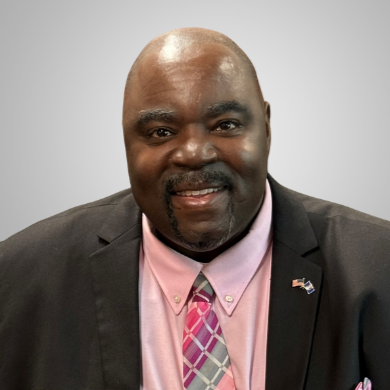Meet Henry Williams, the man taking on illegal gambling operators and turning Michigan into a model for regulation across the United States.
In the fragmented regulatory landscape of U.S. gambling, one regulator stands out for all the right reasons: Henry Williams, Executive Director of the Michigan Gaming Control Board (MGCB).
Williams, named the American Gaming Association’s Regulator of the Year in 2024, has led the MGCB since 2021.
A lifelong Detroiter, former social worker, and outspoken advocate for the people, he has spearheaded enforcement against illegal operators, introduced greater protections for players and driven awareness, most notably the state’s award-winning responsible gambling campaign, “Don’t Regret the Bet”. He’s also been the driving force behind the modernisation of Michigan’s regulatory framework.
Under his leadership, Michigan’s gambling market has achieved record growth, generating billions in tax revenue for the state and establishing itself as one of the most proactive and respected regulators in the U.S.
To find out more, I sat down and spoke with Williams to get his thoughts on the current state of U.S. gambling and, most potently, explore how The Great Lake state is spearheading the fight against illegal gambling.
Tackling Illegal Gambling
Illegal gambling–especially offshore online casinos and unlicensed sports betting–is a rising threat across the U.S.
Just last month, for example, a Yield Sec report estimated that 74 percent of U.S. online gambling GGR goes offshore — that’s US$67.1 billion (£52.7bn) to illegal operators and US$23 billion (£18.1bn) to the regulated market.
And while many U.S. regulators, new to gambling, are yet to take enforcement action seriously, Michigan, which has 360 online gaming, takes a tough stance.
In 2024, the MGCB seized and destroyed over 200 illegal gaming machines, issued cease-and-desist orders to unlicensed operators, and worked with law enforcement to secure criminal convictions.
And this effort has been accelerated this year, with more than 120 illegal websites already targeted, 19 of them taken down on July 2.
Tackling illegal gambling is a top priority, Williams asserted: “We take a proactive, multi-pronged approach that includes education, enforcement, and collaboration.
“These aren’t victimless operations. They put people’s money and data at risk, offer no responsible gambling tools, and undermine the trust we’ve built in the legal market.”
Despite the scale of the challenge, he remains optimistic:
“Each action we take disrupts illegal networks, informs the public, and reinforces the integrity of Michigan’s regulated market.
“We’ve seen measurable results, reduced the visibility of illegal machines, encouraged greater engagement from law enforcement, and fostered increasing support from licensed operators.
“The fight is ongoing, but we’re committed–and well-positioned–to lead it.”
Michigan Market’s Speed Limits
As the U.S. gambling industry, particularly iGaming, has grown rapidly, concerns have arisen that regulation isn’t keeping pace.
One regulator even went so far as to describe the industry as a “highway without speed limits”.
But Williams disagrees.
“In Michigan, we do have speed limits. And it’s our job to enforce them.”
“Michigan has a comprehensive regulatory framework designed to ensure a safe, responsible, and well-governed gaming environment.
“While the industry is certainly evolving quickly, speed doesn’t have to come at the expense of structure or oversight.
“Our role as regulators is to keep pace with innovation while staying grounded in our mission: to ensure the conduct of fair and honest gaming to protect the interests of the citizens,” he stressed.
Cannibalisation: Fact Or Fiction
One of the most significant debates in U.S. gambling policy is whether online casinos pose a threat to the revenue of land-based venues.
States, like Michigan, which legalised online casinos and sportsbooks in 2019, provide real-world data and evidence to counter this narrative.
Williams confirmed that, while he feels it’s a valid conversation, in Michigan, there’s no evidence to support this concern.
“We’re seeing the two sectors complement each other,” he explained. “Online gambling appeals to different types of players, those who prefer convenience and mobile play; while land-based casinos remain a destination for entertainment and tourism.”
Wake Up! And Smell The Kalshi
As the U.S.’s most progressive regulator, Williams shared his concerns regarding the brewing “Kalshi-Crisis”, which is setting off alarm bells across the U.S gambling industry.
“A federal decision to permit these types of contracts could effectively legalise sports wagering on a national scale, bypassing existing state laws and tribal-state compacts,” he warned.
“That raises concerns for regulators and operators alike, who have worked to establish strong frameworks for consumer protection, financial integrity, and responsible gaming.”
He added: “An argument could be made that such a decision might incentivise licensed operators to sidestep state-level oversight by shifting to federally regulated exchange platforms.
“A move that would undermine the careful balance states have struck to ensure responsible, accountable gaming and should be strongly opposed.”
Williams believes: “From the standpoint of a state gaming control board, this isn’t just a flashpoint — it’s a wake-up call.”
And it could be a watershed moment.
“If the courts and regulators affirm Kalshi’s federal framework as sufficient to pre-empt state controls, it could open the door for a wave of federally regulated betting platforms.
“That would mark a paradigm shift, moving major parts of sports betting and event markets out from under state purview,” affirmed the regulator.




